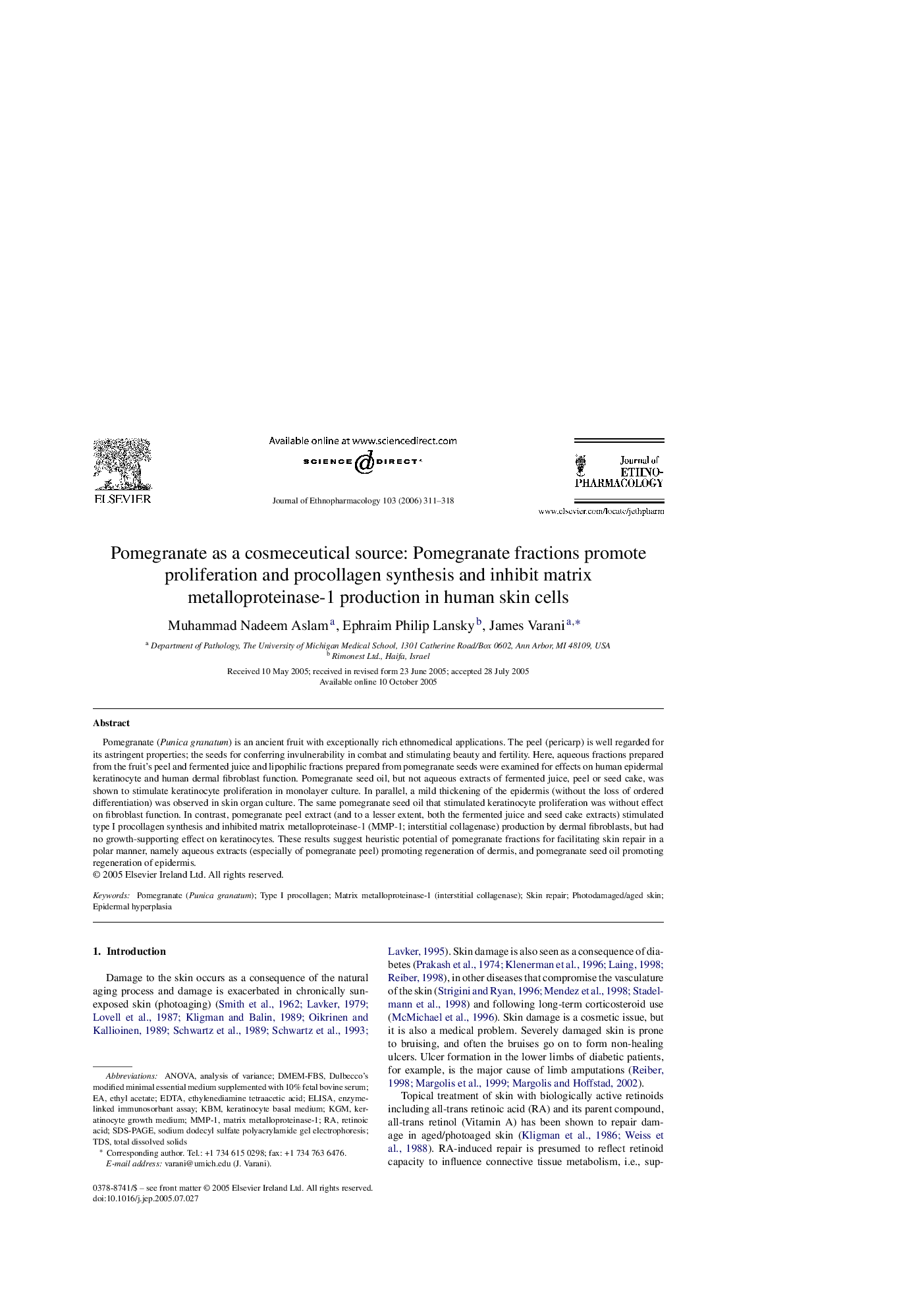| Article ID | Journal | Published Year | Pages | File Type |
|---|---|---|---|---|
| 2547485 | Journal of Ethnopharmacology | 2006 | 8 Pages |
Pomegranate (Punica granatum) is an ancient fruit with exceptionally rich ethnomedical applications. The peel (pericarp) is well regarded for its astringent properties; the seeds for conferring invulnerability in combat and stimulating beauty and fertility. Here, aqueous fractions prepared from the fruit's peel and fermented juice and lipophilic fractions prepared from pomegranate seeds were examined for effects on human epidermal keratinocyte and human dermal fibroblast function. Pomegranate seed oil, but not aqueous extracts of fermented juice, peel or seed cake, was shown to stimulate keratinocyte proliferation in monolayer culture. In parallel, a mild thickening of the epidermis (without the loss of ordered differentiation) was observed in skin organ culture. The same pomegranate seed oil that stimulated keratinocyte proliferation was without effect on fibroblast function. In contrast, pomegranate peel extract (and to a lesser extent, both the fermented juice and seed cake extracts) stimulated type I procollagen synthesis and inhibited matrix metalloproteinase-1 (MMP-1; interstitial collagenase) production by dermal fibroblasts, but had no growth-supporting effect on keratinocytes. These results suggest heuristic potential of pomegranate fractions for facilitating skin repair in a polar manner, namely aqueous extracts (especially of pomegranate peel) promoting regeneration of dermis, and pomegranate seed oil promoting regeneration of epidermis.
